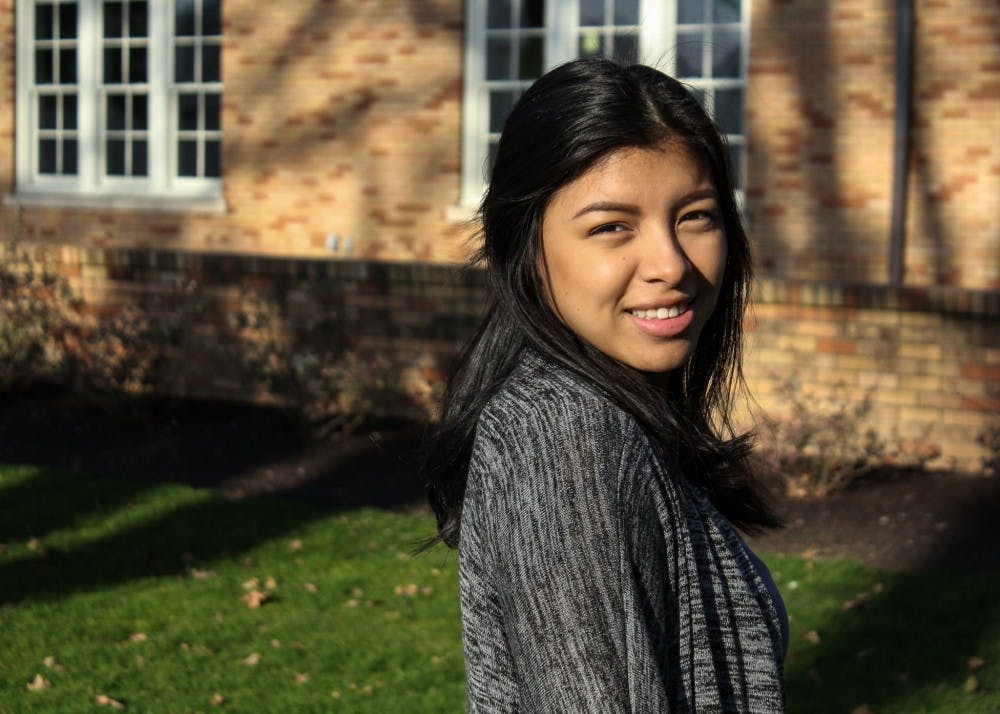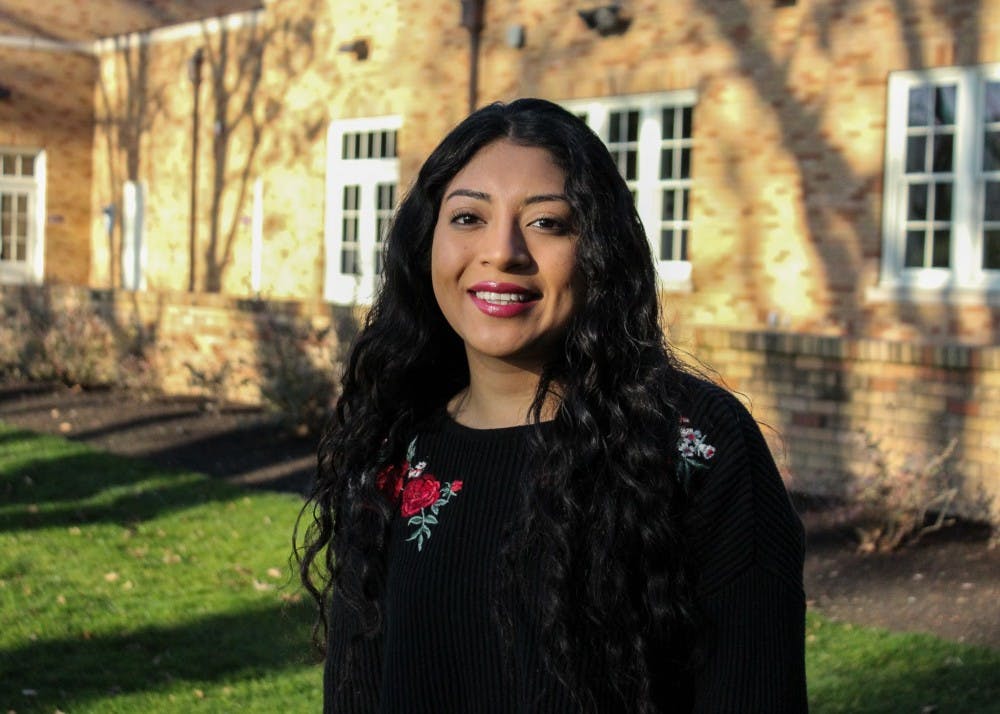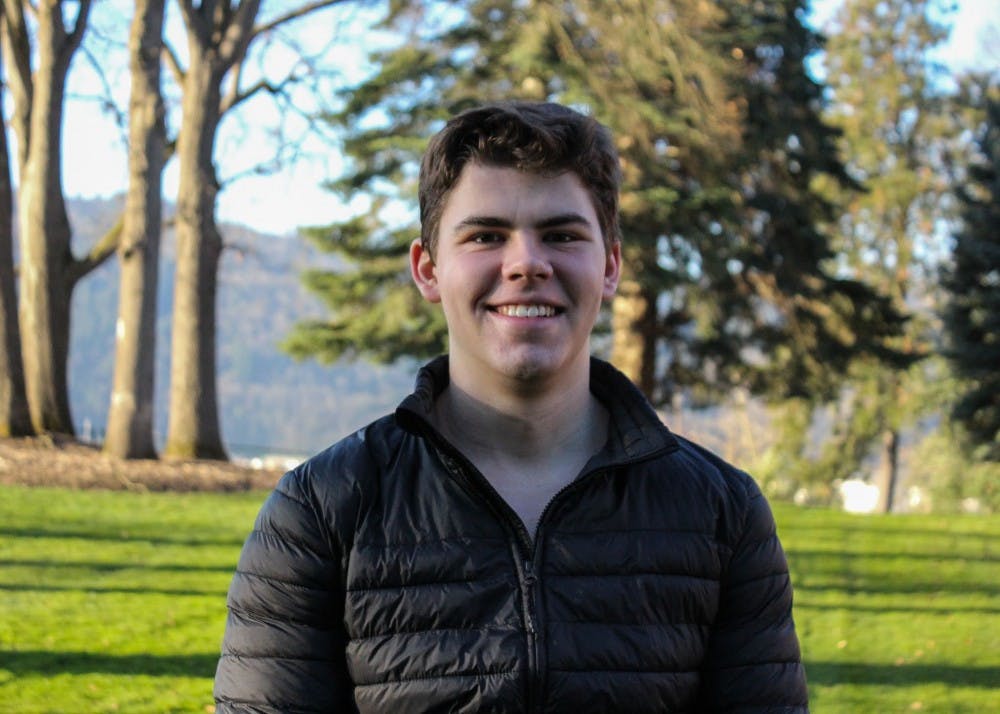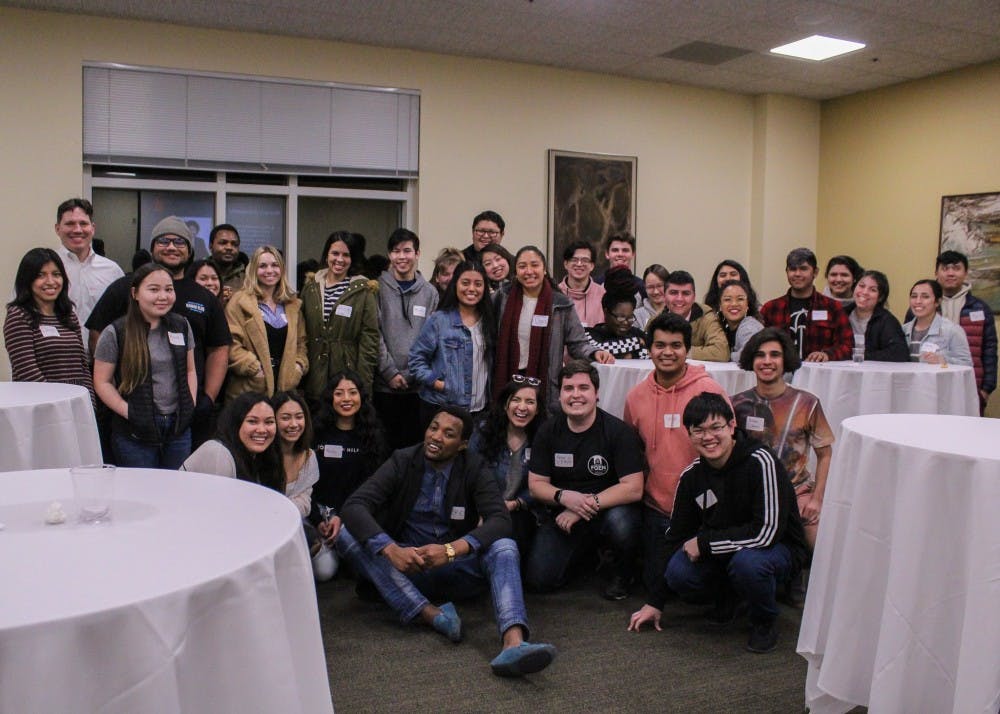At the end of her freshman year at the University of Portland, Autumn Clay was ready to leave. Moving from her culturally diverse hometown of Long Beach, California, to the overwhelmingly white University of Portland was a culture shock. It left her feeling without a community at UP.
Then, at the beginning of her sophomore year, Clay, junior biology major, heard about the first-generation (FGEN) student program run by the Shepard Academic Resource Center (SARC) and started attending events. She bonded with the FGEN community, became a peer mentor and is now coordinating the peer mentor program during her junior year. She credits the first-generation program for giving her a community she could relate to and says the program was a major factor in her decision to stay at UP.
Clay is one of the 776 first-generation college students at UP, a number that translates to around one-fifth of the student body, according to Matt Daily, assistant director of the SARC and program manager for special populations and learning assistance. Daily oversees the first-generation student program that connects students to resources on campus and builds community among first-generation students.
Although definitions vary, UP considers a student first-generation if neither parent or guardian has completed a four-year college degree, Daily said. At UP, the students who qualify decide how involved they want to be with the events and the community, which, for many students, is one of the most important aspects of the program.

Junior nursing major Deysi Velador is a mentor in the FGEN program.
When junior nursing student and peer mentor Deysi Velador joined the FGEN community, she was relieved to connect people who shared her experiences.
“Being of a different race than the majority here at this school is very difficult, and when I went to that first meeting, I finally saw people of different colors, people who looked like me and who talked Spanish just like I did, and it was really comforting to see that there were people like that here,” Velador said. “It’s like ‘Ok, I have people here who kind of understand what I’m going through.’ And if I didn’t have that, I don’t know how confident I would be in myself being here either.”
Research shows that students whose parents have no education beyond high school are less likely to graduate college than students whose parents have at least a bachelor’s degree. One of the main goals of the FGEN program is getting first-generation students to return to campus each year and graduate.
The program helps students decode the unwritten rules of college by offering help and advice they may not get at home. Rocio Ruiz Lopez, a freshman nursing major, said that first-generation students are often unsure of where to get help or what kind of resources exist on campus.

Freshman nursing major Rocio Ruiz is a mentee in the FGEN program.
Parents who haven’t experienced dorm life, transcripts, office hours or other common college components may struggle to understand the best ways to support their students, Velador said.
“It can be stressful having to explain to parents the place that they have (in supporting their students),” Velador said.
For many first-generation students, parents’ financial concerns can add more stress to the college experience, Clay said. Parents may worry about affording tuition or may pressure their children into choosing a certain major for their investment to seem worthwhile, she said.
“The students that are FGEN have to work twice as hard to get that money, to get those scholarships, to get those grants in order to continue on every semester,” Clay said. “But there are students here who don’t have to worry about those things, who don’t have to get second jobs, or even first jobs.”
The FGEN program starts with a pre-orientation session where students come to campus before classes start in the fall and attend workshops on time management, study strategies and managing mental health. A professor sets up a mock Moodle page, complete with a syllabus and practice assignment.
In his practice Moodle assignment, freshman English major Norman Hilker was reminded of why his time at UP matters.
“We got to do an essay and reflect on how important being a first-generation student is and that weight we have to carry for the next four years,” Hilker said. “The goal of being a first-generation student is to be the last one in your family.”

Freshman English major Norman Hilker is a mentee in the FGEN program.
Throughout the academic year, the program also holds sessions on careers, interviews, internships, study abroad programs, financial literacy and more. In the past year, the budget for the FGEN program has expanded, allowing the program to put on more events and reach more students.
“(A study abroad session) was really impactful because some of the mentors that were there told their stories of studying abroad,” Ruiz Lopez said. “There’s just something more about hearing it from them.”
Within the first-generation program is the peer mentor program, where an older student mentors two or three freshmen each semester. Daily said that research tends to show that a peer-to-peer support program is one of the most effective ways to help first-generation students return to campus each year.
The students meet one-on-one with their mentors every week to discuss different aspects of college and the resources they can access. Peer mentor Deysi Velador was inspired to start mentoring when she recognized at the end of her sophomore year how much she appreciated the first-generation community.
“All the seniors get a chance to tell their stories (at the end-of-the-year banquet) and tell other FGEN students what they’ve gone through and how they’ve gone through it,” Velador said. “I thought, ‘Maybe one day I’ll be able to do that too.’”

Junior biology major Autumn Clay (left) is mentor to freshman chemistry major Ryan Enslow (right).
Social events are a key part of the program because they allow students to connect with other people who share their stories, freshman chemistry major Ryan Enslow said. The program holds events at UP and even organizes off-campus outings. Last semester, students went bowling, visited the Zoo Lights and took a trip to the Oregon coast.
Hilker agreed that the highlight of the program has been the people he’s met who have changed his college experience.
“It introduced me to all these people who I didn’t know would be so open and kind,” Hilker said. “(Without it) I wouldn’t have been as open to so many experiences. I would’ve stayed in my room. I wouldn’t have been out there as much connecting with others.”
Velador explained that while she has friends outside of the FGEN community, her friendships with other FGEN students are different because of the background they share and the support they provide one another.
“Even though I had made other friends and talked to other people, it’s not the same, and it just felt really encouraging,” Velador said. “Having all these people now who support me and encourage me and check up on me is just always a good feeling.”
Clay echoed Velador’s sentiments about the community the program fosters and its effects at UP.
“I feel like UP should definitely support FGEN just because of the impact that it’s making,” Clay said. “It’s built this huge community — it’s empowered so many students to continue getting a higher education when that’s not something that’s common in their family.”
Dora Totoian is a senior reporter for The Beacon. She can be reached at totoian20@up.edu.








